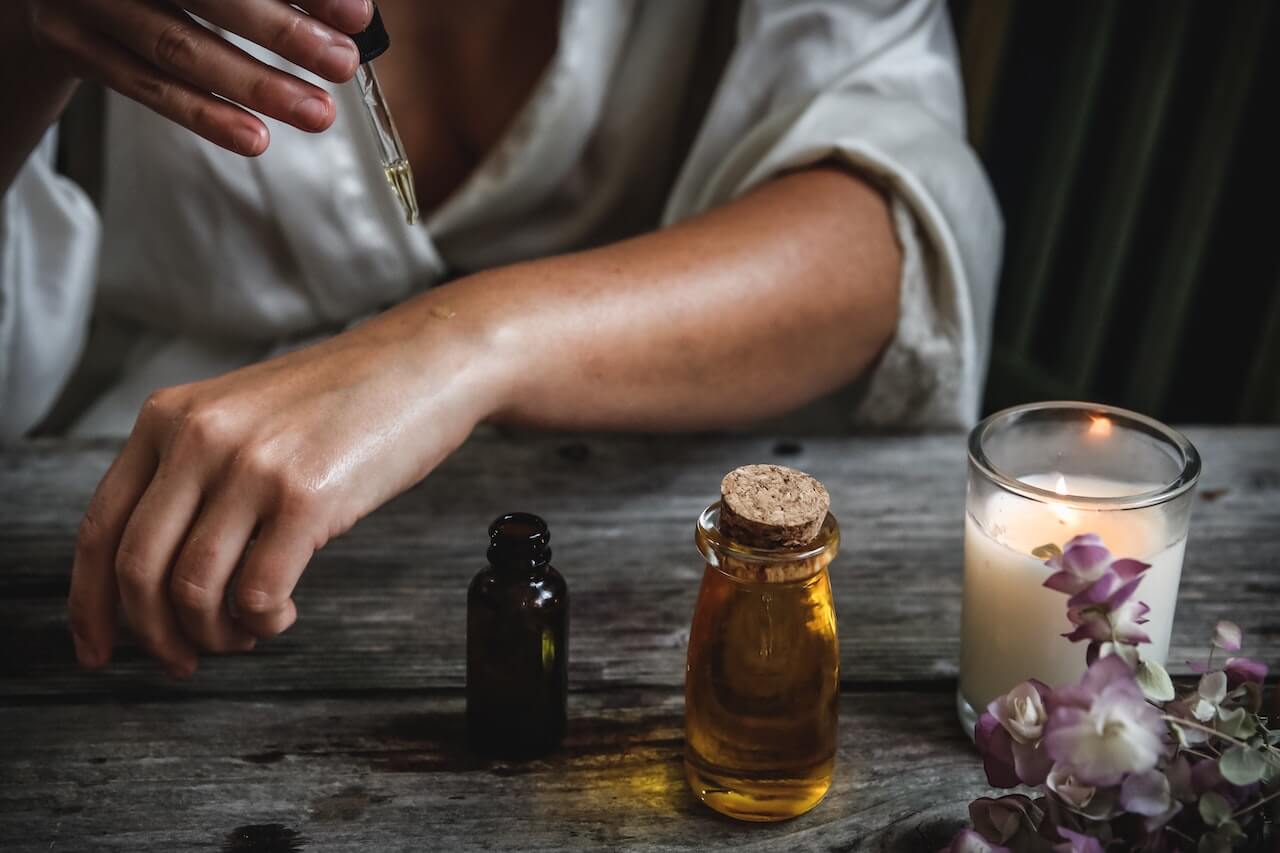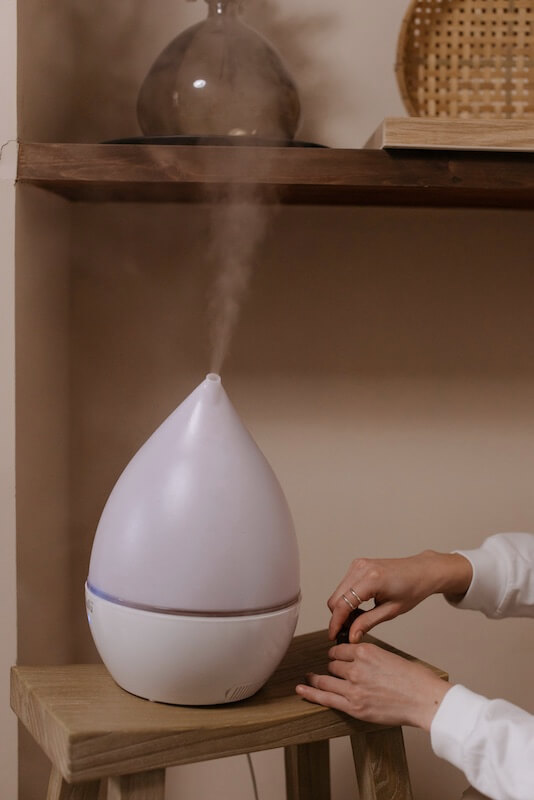What is the Difference Between Dry & Dehydrated Skin?
As we wave goodbye to summer, a particular issue that is expected to increase in the colder autumn/winter season is the emergence of dry and dehydrated skin. On most occasions, the words ‘dry’ and ‘dehydrated’ usually go hand-in-hand and are typically used interchangeably to describe the same thing. However, in the context of skin, the two concerns are rather distinct. In fact, it isn’t uncommon for skin to be both dry and hydrated, or alternatively, oily and dehydrated.
Want to differentiate between the two? Read on to find out the various causes and characteristics of both of these skin concerns and how to successfully manage them.
What Is Dry Skin?
To put it simply, dry skin is a skin type where the skin lacks natural oils. As you may know, the skin is comprised of multiple layers. The outermost layer, ‘the epidermis’, acts as a protective barrier that shields the skin from harmful microbes, chemicals, sun damage and, pollutants. Those with dry skin possess sebaceous glands which do not produce adequate amounts of natural oils (or sebum). A lack of sebum means that the skin is without the important lipids it needs to retain essential moisture. This results in a weaker epidermal layer that is unable to maintain a strong barrier against the aforementioned external aggressors.
Signs your skin is dry
1) Rough texture
2) Itchiness
3) Looks and feels dry to touch
4) Flakiness
5) Scaling
6) Cracking
7) Redness
8) Ashy skin (more common for those with darker skin tones)
Causes of dry skin
- Genetics: Dry skin is often attributed to genetics. According to one study, mutations in genes controlling the proteins, profilaggrin and filaggrin, have been indicated to play a role in the formation of a defective stratum corneum (the uppermost layer of the epidermis which functions as the skin barrier).
- Weather conditions: Dry skin is usually more common in areas where temperatures and humidity levels are low. This explains the increased prevalence of dry skin concerns during the drier, windier, and cooler months of the year.
- Heat: The presence of central heating, fireplaces, and wood-burning stoves all reduce the humidity in the air which ultimately saps moisture from the skin. Similarly, taking long, hot baths & showers can also cause drying.
- Harsh soaps and detergents: Commercial products with synthetic chemicals like sodium lauryl sulfate, isopropyl alcohol, ammonium lauryl sulfate may make your skin very dry. Additionally, whilst some oils leave a moisturising effect, formulations with excessive amounts of coconut, castor, or olive oil can actually strip the natural oils from the skin.
- Underlying medical conditions: People living with HIV are all more likely to have dry skin than those who do not. Investigations have shown that this may be due to medication side effects or poor eating habits adopted by sufferers. Furthermore, people with kidney disease and anorexia are also more likely to possess dry skin as a result of nutrient and fluid imbalances in the body.
Managing Dry Skin
In order to treat dry skin, techniques employed must protect the skin from harsh exacerbating factors and help to maintain sebum levels:
- Protect & cover-up: Use SPF and keep your face protected from harsh weather conditions or extreme cold. Perhaps wrap a scarf around your face when you venture outdoors in the winter!
- Adapt washing habits: Limit your shower time to 10 minutes and switch to lukewarm rather than hot. This will help to retain the naturally occurring oils in your skin.
- Be gentle: Wash your face with a gentle cleanser with no harsh ingredients (e.g. fragrances, acids, dyes, and alcohols) that could dry your skin further. Again, avoid using water that is too hot!
- Add moisture: Use a rich moisturiser that not only locks in moisture but also repairs your skin’s natural barrier. Look out for products that contain rich oils (e.g. jojoba oil) which are able to promote deep and healthy moisturisation. Think about using a night oil in the evenings to continue infusion and repair as you sleep.
What is Dehydrated Skin?
Dehydrated skin can be a precursor to dry skin. However, unlike the latter, it is usually a temporary state that is considered as a skin condition rather than a skin type. As a result, any person (even those with oily skin) can be affected by dehydration. The primary cause of dehydrated skin is a lack of sufficient water content in the stratum corneum. One particular test you can do to determine whether you have the condition is the ‘pinch test’. In this case, you look in the mirror and gently pinch your cheek. If your skin bounces back down quickly, then your skin cells are elastic, healthy, and hydrated. However, if your skin wrinkles instead of holding its shape, then your skin could be parched for water!
Signs your skin is dehydrated:
1) Visible fine lines
2) Tightness
3) Sensitivity
4) Looks dull
5) Uneven skin tone
6) Darker under-eye circles
7) Redness
8) Congestion
9) Inflammation
10) Acne flare-ups
Causes of dehydrated skin:
- Diet & water intake: Dehydrated skin is mainly caused by a lack of water intake. However, increased coffee or tea consumption can also be linked to the condition due to the diuretic effects of caffeine.
- Ageing: Age may just be a number. But, for most of us, the moisture in our skin will gradually decrease as we grow older. As such, our skin will look duller and the appearance of fine lines and wrinkles become more pronounced.
- Hard water: Hard water is water with a high mineral content; specifically, calcium, and magnesium carbonates, bicarbonates & sulfates. The presence of calcium carbonate (i.e. limestone) is particularly damaging as it is capable of removing water from the skin, leaving it dehydrated. This can be further worsened by taking long, hot showers and baths with hard water.
- Sun: Too much sun exposure can not only damage your skin but can also cause it to feel and appear more dehydrated. UV rays contribute largely to dehydration and the development of accelerated signs of ageing.
- Harsh environments: Similar to dry skin, harsh and windy conditions can play a part in dehydrating the skin faster. For those of you who spend hours in an air-conditioned or central-heated room, you may notice that your skin tends to feel drier and tighter than usual.
Managing Dehydrated Skin:
Thankfully, dehydrated skin is relatively easy to treat and is almost all down to changing your lifestyle choices:
- Adapt diet and lifestyle habits: Drink plenty of water alongside a healthy diet to feed the skin from the inside out. In particular, seek foods rich in omega 3 fatty acids to promote hydration. Ideally, cut down on caffeine and avoid alcohol and smoking too!
- Protect & cover-up: Avoid exposure to the sun or harsher weather conditions like cold and windy weather. Use SPF and shield your face when necessary.
- Consider a humidifier: Adding a humidifier at home can assist in maintaining proper humidity levels in the air. This helps to ensure that the skin doesn’t release moisture to the outer environment and instead, keeps it locked in within your body.
- Add moisture: Use products with hydrating ingredients to re-infuse parched skin with the moisture it needs. Humectants like hyaluronic acid, aloe vera, and glycerin are especially known for their moisture-binding properties. They help to draw water into the skin’s surface and keep it from evaporating.
Despite initially appearing similar, dry and dehydrated skin are two different concerns with different signs and symptoms. Regardless, both can be managed by protecting the face from harsh environments, changing lifestyle habits, and using moisture-promoting skincare ingredients.
However, if issues worsen or persist, we highly encourage you to consult with a professional for closer examination. Here at First Derm, we offer a fast and secure service with online board-certified dermatologists (skin doctors) ready to take a look at your skin concerns. Simply upload an image anonymously and we’ll get back to you within a matter of days!
About the author
My name is Rain Speake, a BSc Human Biology and MSc Healthcare Technology graduate from the University of Birmingham. I have an interest in skincare and dermatology and have previously undertaken research on the formulation of an anti-scarring spray for oral delivery. Beyond the lab, I enjoy keeping up to date with emerging scientific trends and communicating health-related topics to the public.
Sources
- https://onlinelibrary.wiley.com/doi/full/10.1111/j.1468-3083.2007.02379.x?saml_referrer
- https://www.ncbi.nlm.nih.gov/pmc/articles/PMC2721001/
- https://www.ncbi.nlm.nih.gov/pmc/articles/PMC3166536/
- https://www.ncbi.nlm.nih.gov/pmc/articles/PMC3891143/
- https://www.ncbi.nlm.nih.gov/pmc/articles/PMC4381361/
- https://www.ncbi.nlm.nih.gov/pmc/articles/PMC4344124/
- https://www.jidonline.org/article/S0022-202X(17)32938-X/fulltext
- https://pubmed.ncbi.nlm.nih.gov/32463305/
- https://www.ncbi.nlm.nih.gov/pmc/articles/PMC5849435/
- https://pubmed.ncbi.nlm.nih.gov/17026654/
Image Courtesy:
- Photo by Hassan OUAJBIR on Unsplash
- Photo by Chelsea shapouri on Unsplash
Photo by cottonbro from Pexels
Ask a Dermatologist
Anonymous, fast and secure!

The Specialist doctor from the University Hospital in Gothenburg, alumnus UC Berkeley. My doctoral dissertation is about Digital Health and I have published 5 scientific articles in teledermatology and artificial intelligence and others.




